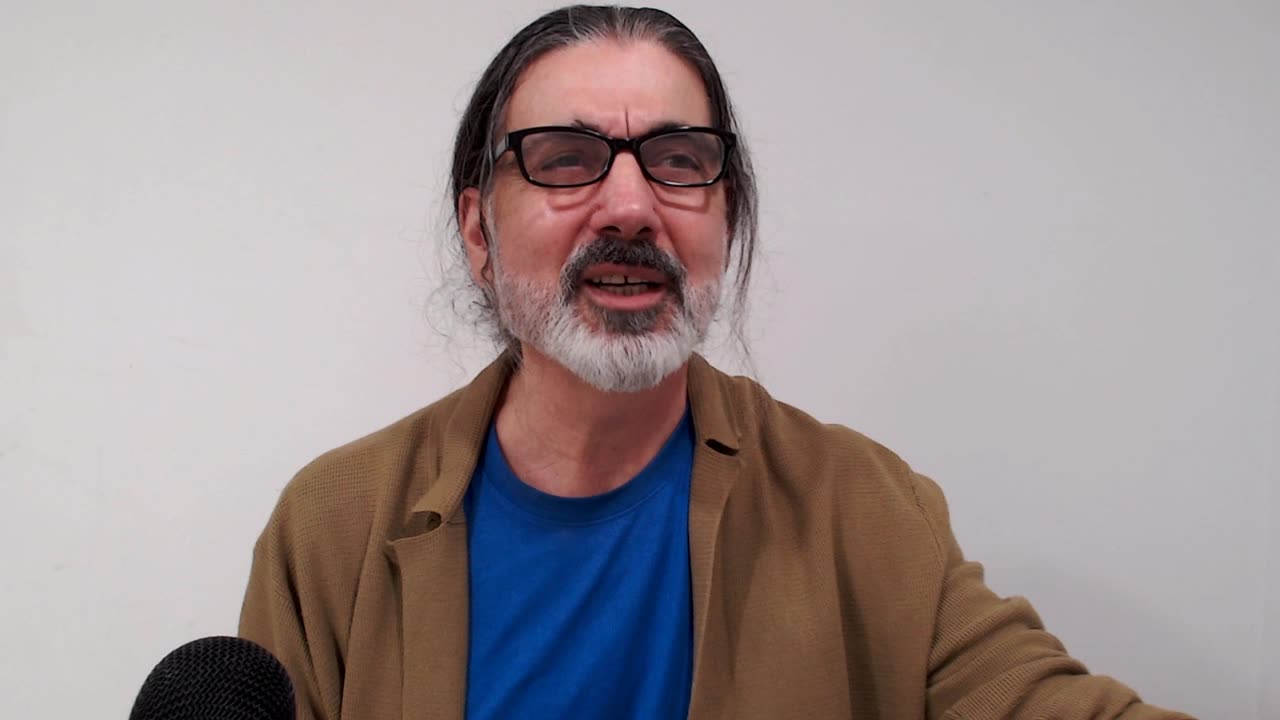Premium Only Content

Shooting From The Hip - 42 - Subjectivity & Objectivity: Why Do They Matter? Part 2
-“Perception is merely a lens or mindset from which we view people, events, & things” -our perceptions feel very real, that doesn't mean they're necessarily factual
Subjectivity -philosophical context has a lack of objective reality -it is related to ideas of consciousness, agency, personhood, philosophy of mind, reality & truth
3 common definitions include that subjectivity is the quality or condition of: 1) narrowly meaning an individual who possesses conscious experiences, such as perspectives, feelings, beliefs & desires 2) broadly meaning an entity that has agency, meaning that it acts upon or wields power over some other entity(an object) 3) Some information, idea, situation or physical thing considered true only from the perspective of a subject or subjects
Objectivity -the concept of truth independent from individual subjectivity (bias caused by one's perception, emotions, or imagination & preferences, opinion) -A proposition is considered to have objective truth when its truth conditions are met without bias caused by a sentient subject Impartial Observation: Scientific objectivity refers to the ability to judge without partiality or external & internal influence
Ivan Petrovich Pavlov (26 September 1849 - 27 February 1936) -was a Russian Soviet experimental neurologist, psychologist & physiologist known for his discovery of classical conditioning through his experiments with dogs - Classical Conditioning-is learning through association & was 1st demonstrated by Ivan Pavlov -showed that dogs could be conditioned to salivate at the sound of a bell if that sound was repeatedly presented at the same time that they were given food -is a behavioral procedure in which a biologically stimulus (e.g. food) is paired with a previously neutral stimulus (e.g. bell)
Social conditioning -process by which people of a certain society are trained to think, believe, feel, want & react in an approved way by society or groups -distorts -Human Nature: 1) Intelligence 2) Curious 3) Creative 4) Adaptive 5) Emotional 6) Sexual
Hierarchy of needs 5-stage model: Abraham Maslow: 1. Physiological (basic) needs 2. Safety needs 3. Love & belongingness needs 4. Esteem 5. Self-actualization
Autotelic: derived Greek: autos (self) & telos (end, goal) -describes people who are internally driven & exhibit a sense of purpose, curiosity
6 factors of flow experience -aspects can appear independently of each other, only in combination do they constitute flow experience
1.Intense & focused concentration on the present moment 2.Merging action & awareness 3.loss of reflective self-consciousness 4.sense of personal control or agency over the situation or activity 5.distortion temporal experience, subjective experience of time altered 6. Experience of activity as intrinsically rewarding, also referred to as autotelic experience
1. Higher productivity -in a flow state correlates with peak performance. Due to the total complete & total attention
2. Increased satisfaction -engagement in the flow, provides a strong sense of satisfaction & accomplishment
3. Improved emotional regulation -changes relationships with emotions active pursuit of flow state is a positive alternative to unhealthy & unproductive coping mechanisms
Brainwave frequency bands: Gamma greater than 30-100 (Hz), BETA 12.5-30 (Hz), ALPHA 8-12 (Hz), THETA 4-8 (Hz), DELTA 4 or less (Hz)
DELTA 0.1 - 3.5 Hz: deep, dreamless sleep, non-REM sleep, trance, unconscious -increase Delta waves in order to decrease our awareness of the physical world - access information in our unconscious mind through Delta
THETA (4-8 Hz): underlies various aspects of cognition & behavior: learning, memory & spatial navigation in many animals - connected: creativity, intuition, daydreaming & fantasizing & repository for memories, emotions, sensations, deep meditation -Theta strong during internal focus, meditation, prayer & spiritual awareness
ALPHA (8-12 Hz): physically & mentally relaxed, enhances sense of relaxation - appears bridge conscious to subconscious -is a common brain state & when a person is alert, but not actively processing information
BETA (12.5-30 Hz): state associated with waking consciousness - alertness, agitation, excitement - active conversation, decisions making & problem solving, task focus
GAMMA (30-100 Hz): increased cognitive enhancement, heightened perception, learning, attention to detail, problem solving, assist memory recall -are correlated with large-scale brain network activity & cognitive phenomena such as working memory, attention & perceptual grouping & can increase via meditation or neurostimulation
Altered Traits: Science Reveals How Meditation Changes Your Mind, Brain & Body - 2017 book by science journalist Daniel Goleman & neuroscientist Richard Davidson -authors conducted a literature review of over 6,000 scientific studies on meditation, & selected the 60 that they believed met the highest methodological standards
-
 3:22:01
3:22:01
SpartakusLIVE
3 hours agoSOLOS on ARC Raiders || WZ Stream LATER
117K1 -
 LIVE
LIVE
GritsGG
5 hours agoBO7 Warzone Is Here! Win Streaking! New Leaderboard?
276 watching -
 1:00:55
1:00:55
Jeff Ahern
4 hours ago $8.18 earnedThe Saturday show with Jeff Ahern
46.5K16 -
 LIVE
LIVE
Ouhel
7 hours agoSATURDAY | Battlefield 6 | Going for the Queen in Arc after | O'HELL LIVE |
59 watching -
 LIVE
LIVE
ShivEmUp
5 hours ago🔴LIVE🔴🔵Battlefield 6🔵Game Changing Updates?🔵Grumpy Bird🔵
66 watching -
 7:10:39
7:10:39
Grant Cardone
7 hours agoHow to Find Your First $1million Profit In Real Estate
167K7 -
![[ FF7 Remake] | Cloud doing what he does best [ PART 6 ]](https://1a-1791.com/video/fwe2/a6/s8/1/Y/8/Y/F/Y8YFz.0kob.1-small--FF7-Remake-Cloud-doing-wha.jpg) 5:00:59
5:00:59
CHiLi XDD
6 hours ago[ FF7 Remake] | Cloud doing what he does best [ PART 6 ]
4.23K -
![Mr & Mrs X - [DS] Pushing Division, Traitors Will Be Exposed, Hold The Line - EP 18](https://1a-1791.com/video/fwe2/96/s8/1/w/U/W/F/wUWFz.0kob-small-Mr-and-Mrs-X-DS-Pushing-Div.jpg) 54:40
54:40
X22 Report
9 hours agoMr & Mrs X - [DS] Pushing Division, Traitors Will Be Exposed, Hold The Line - EP 18
124K50 -
 LIVE
LIVE
FusedAegisTV
20 hours agoFUSEDAEGIS | Confronting the Paintress | Expedition 33 PART VIII
39 watching -
 LIVE
LIVE
ReAnimateHer
22 hours ago $1.70 earnedScreams in the Fog | DBD Live
102 watching